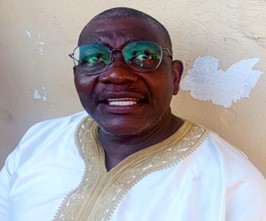Former Liberian Senate Pro-Tempore, Armah Zulu Jallah, delivered a stark assessment of Liberia’s development prospects during a significant gathering of the Kpelle tribe in Bong County. Jallah argued that the current structure of the national budget severely hinders the government’s ability to foster meaningful development. He pointed to the disproportionate allocation of resources towards recurrent expenditures, leaving a meager portion for crucial development initiatives. Jallah’s concerns resonated with other prominent figures at the gathering, including former senators, current senators, local officials, and tribal elders, signaling a shared understanding of the budgetary constraints impeding progress.
The crux of Jallah’s argument lies in the overwhelming percentage of the national budget dedicated to recurrent costs. He estimated that roughly 90% of the approximately $800 million budget is absorbed by salaries, travel allowances, vehicle purchases for government officials, debt servicing, and other recurring expenses. This leaves a mere 10%, or around $80 million, for development projects across the entire nation. Jallah emphasized the inadequacy of this amount, highlighting that it wouldn’t even suffice to effectively run Cuttington University, a single institution within Bong County. He questioned the feasibility of achieving substantial development goals, such as improved road infrastructure in remote areas like Sanoyea, with such limited funding.
Jallah’s critique underscored the urgent need for a fundamental restructuring of the national budget. He stressed the necessity of redefining priorities and shifting resources towards development initiatives to stimulate meaningful progress. He cautioned that without such a budgetary overhaul, Liberia’s development prospects would remain bleak. His call for action resonated with the attendees, emphasizing the collective responsibility of stakeholders to address this critical issue. The gathering of the Kpelle tribe served as a platform to raise awareness about this crucial budgetary imbalance and its implications for national development.
This critique of Liberia’s budgetary structure comes at a time when the country is grappling with numerous development challenges. Inadequate infrastructure, limited access to quality education and healthcare, and persistent poverty are among the pressing issues facing the nation. Jallah’s remarks highlight the urgent need for a more strategic allocation of resources to address these challenges effectively. The disproportionate focus on recurrent expenditures, while necessary for government operations, leaves little room for investments in critical sectors that can drive sustainable development and improve the lives of ordinary Liberians.
The call for a National Kpelle Bank, advocated by Jallah and supported by other attendees, represents a potential avenue for mobilizing resources within the Kpelle community. This initiative, if realized, could complement government efforts by channeling funds towards development projects specifically targeted at the Kpelle people. It reflects a growing recognition of the importance of community-led development initiatives in supplementing government resources and addressing localized needs. The emphasis on both budgetary reform at the national level and community-based resource mobilization highlights a multi-faceted approach to tackling development challenges.
Jallah’s experience as Senate Pro-Tempore lends significant weight to his assessment of the budget. His intimate knowledge of the budgetary process and the challenges involved provides valuable insights into the structural limitations hindering development. His call for a restructuring of the budget is not merely a critique but a call to action based on firsthand experience. The gathering of the Kpelle tribe served as a platform to amplify this message and galvanize support for budgetary reform among key stakeholders, including community leaders, elected officials, and prominent members of the Kpelle tribe. The meeting underscores the importance of dialogue and collaboration in addressing critical national issues and charting a path towards sustainable development.














